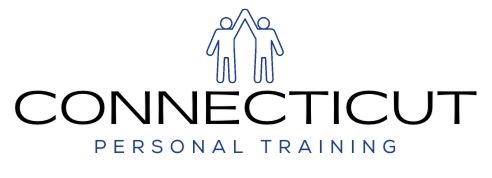We asked our West Hartford Connecticut personal trainer what he thought about teen nutrition, teen activity and the differences between teens and adults.
Being a teen is tough. The teenager’s body is quickly growing physically, emotionally and even socially.
In order to support a teenager’s growth, some important needs must be met. Proper nutrition aids development and learning as well.
“First of all, the teenage growth rate is rapid, and teen bodies must be provided with the correct nutrition,” says our personal trainer in West Hartford Connecticut.
“A teenager will need extra calories, calcium, iron and a sufficient amount of protein, and a certain proportionate amount of carbohydrates, and healthy fats.”
Our West Hartford Connecticut personal trainer goes on to tell us that, it’s no secret that nutritional habits are often set forth by the parents, as children will often—though not always—eat what’s on the table or they won’t eat at all. Or, they may just snack.
If parents provide enough nutrients for their teen, then the teenager will be able to grow efficiently. What’s more, teenagers will most certainly be influenced by their friends, peers, social media and TV. Teens may experience a multitude of body image issues.
Here is the breakdown of macronutrients for teen growth, according to our West Hartford Connecticut personal trainer:
Male teens typically require 2,000-3,100 calories. Female teenagers require a little less, between 1,800 and 2,400 calories per day to be able to achieve the rapid growth that they are undergoing.
This is all contingent upon activity level of course. The higher the activity level, the higher the caloric intake.
Carbohydrates:
Teenagers should consume a minimum of 130 grams of carbs; however, if the teen is active, being involved in sports or dance, the teen diet should be made up of between 45% and 65% carbohydrates to sustain their energy levels. The majority of carbs should come from whole grain breads, fruits and vegetables and whole grain pasta, or anything that is minimally processed.
Teenagers need a sufficient amount of protein—the American Academy of Pediatrics indicates that teens should ingest about 0.5 grams of protein per pound of body weight. Older teens, however, may not need quite as much, unless he/she is very active.
Teens should get their protein from lean sources like legumes, low fat dairy, and of course fish and lean meats.
“Dietary fat is still important to a teen’s growth and development,” said our personal trainer in West Hartford Connecticut. “In general, teenagers will need to consume about 30% of their total calories from fats, preferably healthy ones like avocado and fish.”
As important as calorie intake is to a teenager’s growth, there are clearly a multitude of factors involved in having your teen attain his optimal health.
Activity levels of teens
Our West Hartford Connecticut personal trainer tells us that many children who were once energetic as kids may lose interest in physical activity as teens. But fitness is perhaps more important than ever at this time.
Teenagers need about 60 minutes of physical activity a day.
Since growth will soon stop in the upper teenage years, it’s important to help maintain a healthy weight for when these teens begin their adulthood.
Remaining active doesn’t mean only going to the gym or playing sports. Active teens can get active jobs such as being a camp counselor. Walking is always fantastic, and doing chores around the house helps too.
It is important for teens to limit screen time.
“Be sure to take note if your teen seems overly interested in body image, seems to exercise compulsively, or is restricting their eating,” says our personal trainer in West Hartford Connecticut. “Too often, teens can become involved with the hype from social media, and will start to obsess over their bodies.”
If you notice signs of this, talk to your teen’s doctor as soon as possible.
The right fitness or even fitness and dance routine for your teenager will benefit him/her for the long haul.



